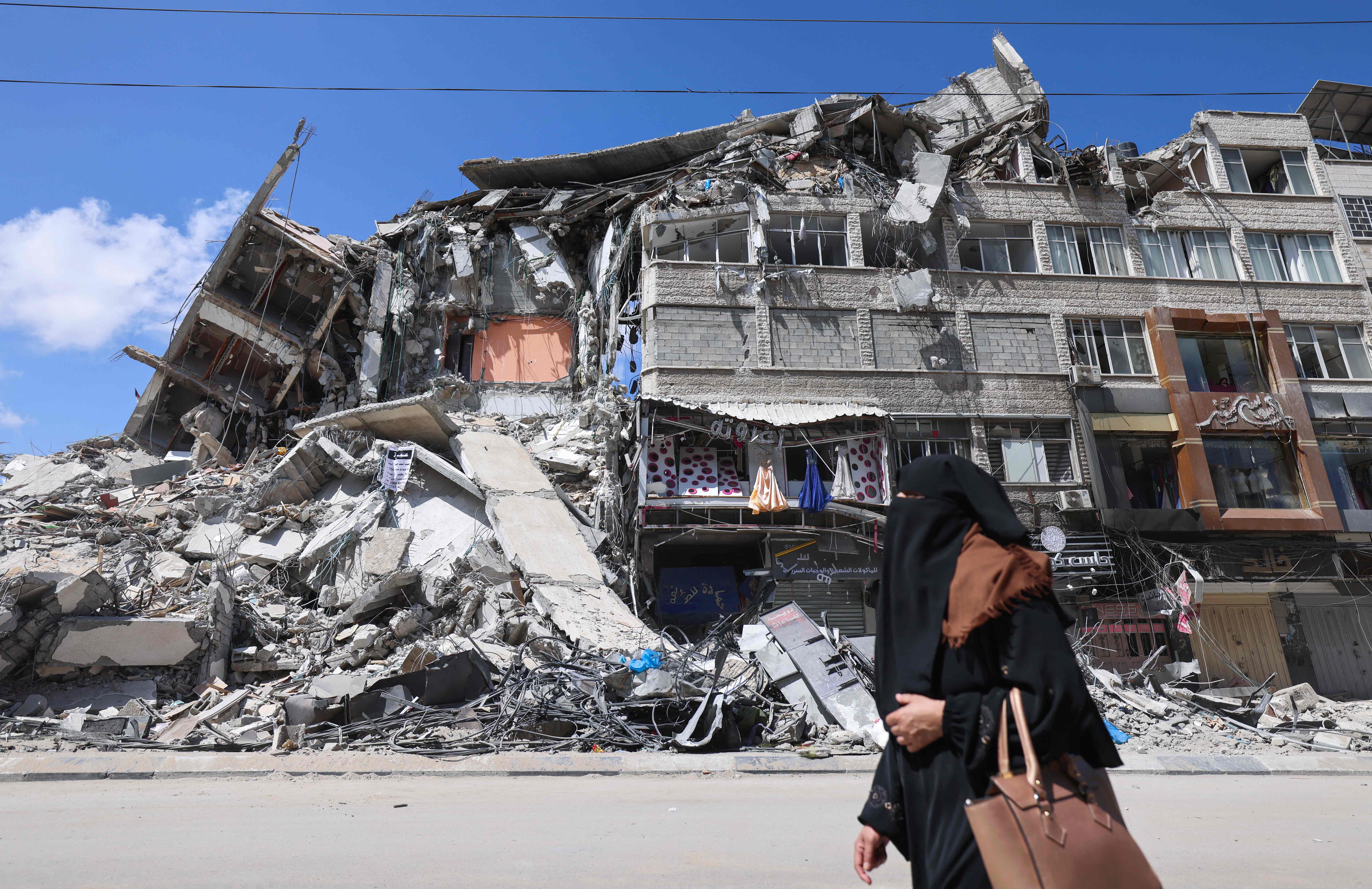We need to address the root causes of the Israeli-Palestinian conflict
Vague statements from the international community mean little without lasting work, writes Bel Trew


This week I sat with a family whose home has been bombed and destroyed in each and every one of the four wars which have ravaged the Gaza Strip since 2008 – including the conflict just last week.
Once again the father was left holding his front door key, and camping in a UN school. The two questions rolling around his head were: why did this happen again? And what is the point of this? This has been repeated to me many times by different people in Gaza as I’ve visited the same morgues, the same hospitals and the same streets chewed up by fresh piles of rubble as I did during the previous two wars.
In Israel 12 people were killed including two children and in Gaza the death toll is more than 200, including more than 60 children. Thousands have been injured by the ferocious fighting.
Gaza took the hardest hit: civilian infrastructure in the blockaded strip has been impacted in the bombardment. The area is again in the grips of 20-plus-hour power cuts, raw sewage is again pouring into the ground or the sea. Smoke from strikes on multiple factories sting the air in the north.
Some of the work over the last few years to stop Gaza from having the unhappy UN accolade of being uninhabitable has been undone.
The efforts to combat Gaza’s unsafe water and waste problem have been set back. Medics fear a second wave of Covid-19 among the largely unvaccinated two million people who live in the strip, crippled by a 14-year Israeli and Egyptian siege in place since militant group Hamas seized control.
Israel says Hamas must stop firing thousands of rockets and there will be peace. The barrage of indiscriminate rocket fire from Gaza was larger and more intense than the entire 2014 war.
Hamas and its militants have centred everything around the volcanic heart of the conflict: Jerusalem. Palestinian civilians in Gaza, the occupied West Bank and Jerusalem, and in Israel proper have, in a rare moment of unification, pointed to decades of discrimination and injustice (that Israel denies). Particularly with the forced evictions of Palestinians from Sheikh Jarrah in occupied East Jerusalem which the UN said may amount to a war crime – and after international and Israeli rights groups recently accused Israel of committing the crime against humanity of apartheid, an accusation which Israel also vehemently denies.
The international community has in vague statements talked about the need for peace while focusing on aid and reconstruction, which is fine but not sustainable.
Flash appeals raising more money to rebuild homes or buildings which will only be smacked down again is pointless and people in Gaza, have had enough. Those living under rockets in Ashkelon and other cities under fire told me they also want long-lasting real peace.
The only way for there not to be another wave of fighting in months or years is to address the root causes of this conflict.
They are very complicated and very real. More aid, or more band aids, will not be enough.
Yours,
Bel Trew
Middle East correspondent
Join our commenting forum
Join thought-provoking conversations, follow other Independent readers and see their replies
Comments
Bookmark popover
Removed from bookmarks